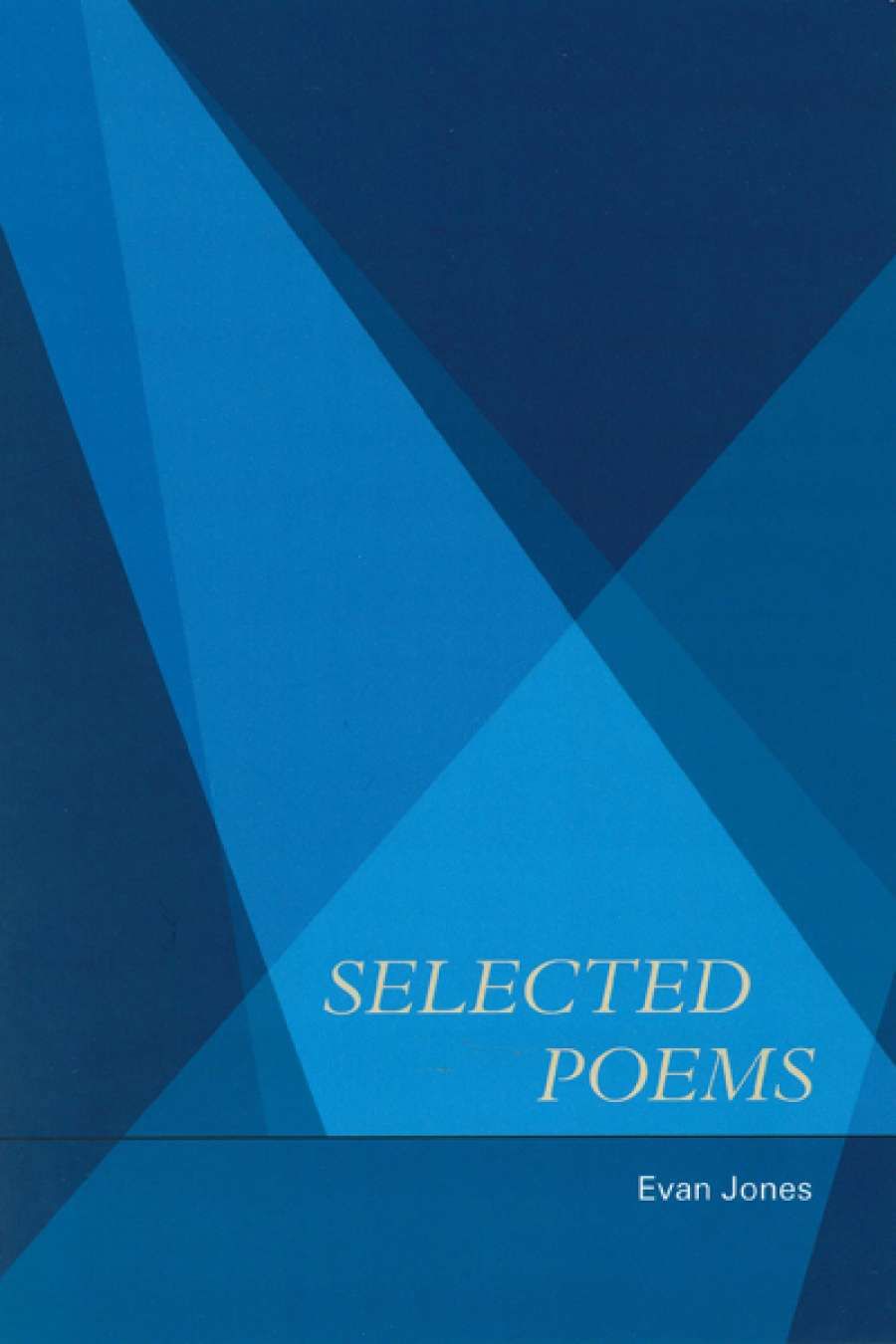
- Free Article: No
- Contents Category: Poetry
- Custom Article Title: Geoff Page reviews 'Selected Poems' by Evan Jones
- Review Article: Yes
- Article Title: Improlific poet
- Online Only: No
- Book 1 Title: Selected Poems
- Book 1 Biblio: Grand Parade Poets, $26.95 pb, 208 pp, 9780987129161
 Chris Wallace-Crabbe
Chris Wallace-Crabbe
Why is it then that the work of Wallace-Crabbe, Buckley, and Steele is better known than the six collections Jones has published in the fifty-four years since Inside the Whale (1960)? Part of the answer lies in that statistic: just a little more than one book per decade. Nearly all the others have been (or were) more prolific, albeit that Buckley had a shorter time to be so. Peter Porter (1929–2010), a close friend of Jones, was much more productive – not to mention Bruce Dawe (b. 1930), who also had University of Melbourne connections in his early days.
Of course, as the relatively frugal output of another comparable poet, Philip Larkin, indicates, this need not be a problem if the poet has something significantly different to offer. Jones’s tendency towards self-deprecating humour, his ear for the vernacular and penchant for satire are distinctive features, but not so greatly different from the works of Wallace-Crabbe and others, which are also often marked by these qualities. These are all questions to bear in mind when reading this welcome selection of Jones’s poetry.
The book features a generous selection from all of Jones’s six collections, with the emphasis on his mid-career ones, Understandings (1967), Recognitions (1978), and Left at the Post (1984). Inevitably, some significant poems are omitted, such as ‘A Summer Death’ from Recognitions and ‘Thinking of Suicide’ from Left at the Post, but mainly the inclusions and exclusions bring into sharper focus the distinctiveness of Jones’s oeuvre.
One inclusion which is particularly fortunate is ‘A Dream of Barricades’, printed here in its full twenty-three pages of rhyme royal. It compares more than favourably with other poems by his colleagues which were likewise sparked by the Hungarian Uprising of 1956. Buckley’s memorable, and much shorter, poem, ‘Secret Policeman’, is just one. In ‘A Dream of Barricades’, Jones cleverly generalises the location of the event rather than talking about Budapest in particular. (Alex Skovron has even glimpsed some Melbourne geography in it.) There is no mention of Russia or communism, an omission which only makes the poem more powerful and has helped prolong its relevance.
Jones rightly calls it a ‘dream’, and its strict form, maintained for so long, helps to reinforce that dimension. It is the most ambitious poem in the book. The absence of comparable poems may be another partial reason for the ‘neglect’ of Jones’s work which some critics and fellow poets have noted.
‘Paradoxically, it is often when Jones is at his least overtly ambitious that he is most persuasive and characteristic’
Paradoxically, it is often when Jones is at his least overtly ambitious that he is most persuasive and characteristic. Take, for instance, the opening of a fairly early poem, ‘Generations’: ‘I go to see my parents, / we chew the rag a bit; / I turn the telly on / and sit and look at it. // Not much gets said: / there doesn’t seem much point. / But still they like to have / me hanging round the joint.’ The poem ends more seriously, as does the Larkin classic, ‘This Be the Verse’, with which Jones’s poem can bear honourable comparison.
Though Jones has quite a few relatively light poems dedicated to his four children, he is also a compelling poet of marital breakdown and divorce. This stanza from ‘The Divorcees’ is just one example: ‘The women find the single men too dull / Or too young to make a match; / Single girls see in the men a leering skull / To set against the catch.’
 Evan Jones
Evan Jones
Another more poignant note is struck in ‘Honeymoon, South Coast’, which features lines such as ‘Insomniac, snoring, they lay back to back; / Next morning they walked hand in hand, / But insecurely / Through mile on mile of wrack’. The poem ends, ominously, with: ‘They lay along a hundred miles of coastline: / But in the shadow of the hills / They set out together / Through years and years of rain.’
Jones is an adroit user of many different stanzaic forms (ballade, terza rima, rhyme royal, pantoum, sestina, etc.). Such skill is not always an unalloyed blessing, since the reader can be distracted by the sheer expertise involved in getting the form right and thus fail to pay attention to the poem’s argument. Some poems in Jones’s first book suffer particularly from this.
On the other hand, these sorts of skills (pace Stephen Edgar, Alan Gould, and Clive James) are in short supply in Australian poetry at the moment. That is yet another reason why the release of a substantial Selected by this somewhat overlooked poet is not only a happy occasion but a salutary one.


Comments powered by CComment